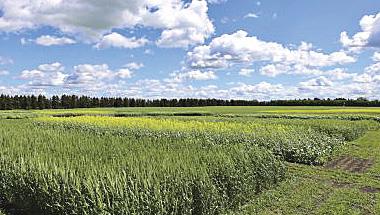
1 minute read
3 Advantages Of Crop Diversification
from 966

Submitted
Advertisement
Crop diversification is the agricultural practice of cultivating a variety of crop types. This offers many benefits and could provide solutions to some of the key problems modern farmers face. Here are three advantages offered by crop diversification.
1. It helps farmers make ends meet
As crop prices become less stable and growing conditions become more difficult, many farmers struggle to ensure their financial security. However, farmers can reduce economic uncertainty by cultivating more than one type of crop. Furthermore, diversification lets farmers take advantage of niche markets in their region (such as by cultivating heirloom varieties to sell at local farmers’ markets).
2. It makes crops more resistant
The traditional way to grow crops is to plant a single cultivar in a given area. However, this results in entire fields that are susceptible to the same hazard, be it a pest or disease. Diversifying crops means that no one pest or disease can destroy a farm’s entire harvest.
3. It lessens environmental impact
Crop diversification makes farms more environmentally friendly. This is because planting a variety of crops makes the soil healthier, which in turn reduces the need to use excessive amounts of fertilizer. In addition, diversification ensures that crops are more resistant to disease and therefore require fewer pesticides.
Lastly, farmers who plant different kinds of crops are able to tap into their regional markets and con tribute to strengthening their lo cal economies. This helps farms thrive and provides them with greater financial security.










